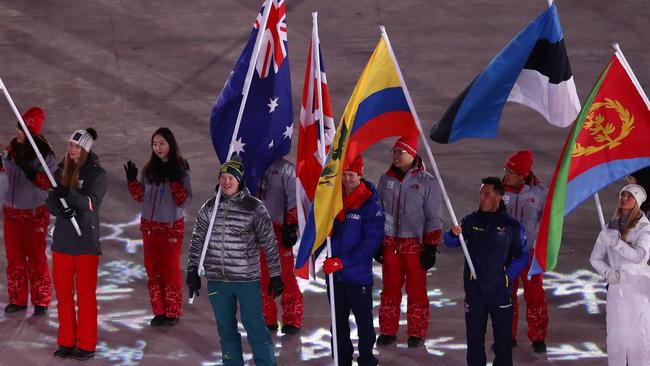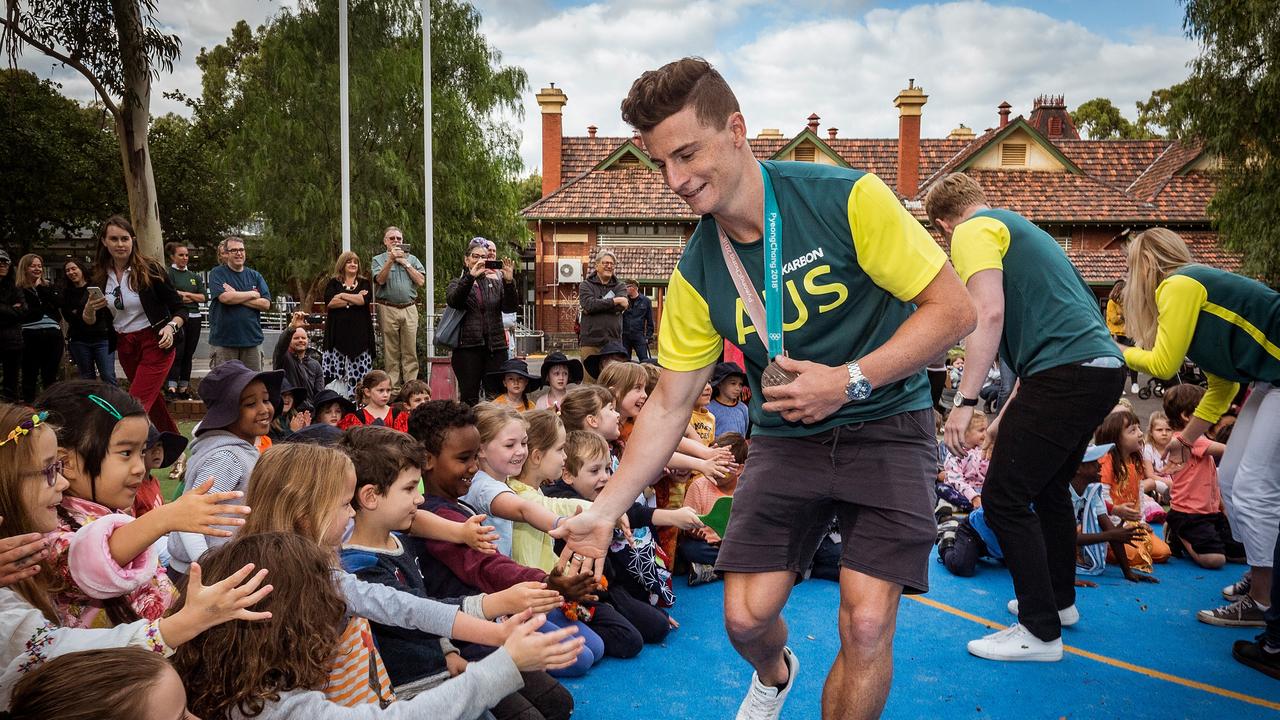Winter Olympics: PyeongChang medal haul a success for Australia
Australia’s chef de mission calls for greater funding to capitalise on a strong base for future Winter Games success.

Australia’s performance at the PyeongChang Winter Olympic Games — two silver medals and a bronze medal — was labelled “the best’’ result by chef de mission Ian Chesterman.
Chesterman said internal expectations were for three medals, and he hailed how the team of 51 had greater international depth than before in a “new era’’, with seven athletes reaching the top six.
“We’ve matched the number of medals previously won, and demonstrated a depth of elite results that we have not seen before,’’ he said.
But Chesterman called for an increase of funding for winter sports, highlighting how the Winter Olympic team had continued to deliver on “the smell of an oily rag’’ and foreshadowed greater opportunities for Australians, especially in the new Olympic sports of big air and slopestyle, if support programs could be developed.
All of the winter sports combined survived on just $4.25 million of government money last year, more than $2m down on comparable summer sports of athletics, canoeing or hockey, yet over the past three Olympics the winter sports have delivered medals.
Chesterman insisted that putting money into the winter sports would not only benefit the top end, but provide opportunities for grassroots participation, especially if planned halfpipe and water ramp facilities were constructed.
He said: “Simply, we need a water ramp training venue. Not only will a water ramp be great for our athletes it will bring a major economic boost to the host region with our athletes and international teams visiting to train.
“Building a half-pipe is also essential and I thank the federal government and Sports Minister Bridget McKenzie for their ongoing commitment to these projects. Both are crying out for a home.’’
The silver medals of closing ceremony flagbearer Jarryd Hughes in the snowboard cross, Matty Graham in the moguls and the bronze of half-pipe guru Scotty James was a slightly superior haul to the results in Sochi four years ago (one silver, two bronze).
It also illustrates how the efforts of the Olympic Winter Institute of Australia in the past decade are paying dividends, with many more Australians in the finals.
The team maintained high morale despite quite a few injuries.
Jakara Anthony’s measured fourth-place effort in the moguls surprised many, especially given world No 1 Britt Cox was relegated to fifth.
David Morris was dudded by some judging and who knows what would have happened if he had the chance to lay down his quintuple trick in the aerials final. But the women’s aerials team — with genuine medal contenders Lydia Lassila, Danielle Scott and Laura Peel — failed to produce under the lights and the cut-throat elimination format of the competition.
If not for a broken hand strap Sami Kennedy-Sim, who finished eighth, may have edged into the ski-cross finals. The broken collarbone to Anton Grimus affected his start in the men’s event, and gutsy Belle Brockhoff, if not for a knee injury, could have figured higher in the snowboard cross.
Chesterman said the low point of the games was the knee injury to young Tess Coady, who was thrown off course by big winds in slopestyle training.
But the future looks particularly bright for all of them, as well as Australia’s medallists, all aged under 24.
As well, the skaters Kailani Craine and the pairs Harley Windsor and Ekaterina Alexandrovskaya; and the speed skater Andy Jung, appear destined to benefit from their first Games experience at the next winter Games in Beijing in 2022.
The meagre funding that has been carefully doled out through the OWIA and the Australian Olympic Committee has been shown to have paid dividends: the medals certainly came from sports that had been more generously supported.
Yet there were other standout performances. Alpine skier Greta Small finished a stellar 20th in the blue riband downhill and a future structured program with consistent coaching could spearhead Australia into that realm, still considered by winter diehards as the “real’’ Olympic sport.
“We have long argued the need for funding to reflect the medal potential compared to summer sports,” Chesterman said, adding that he had high hopes for the May federal budget.


